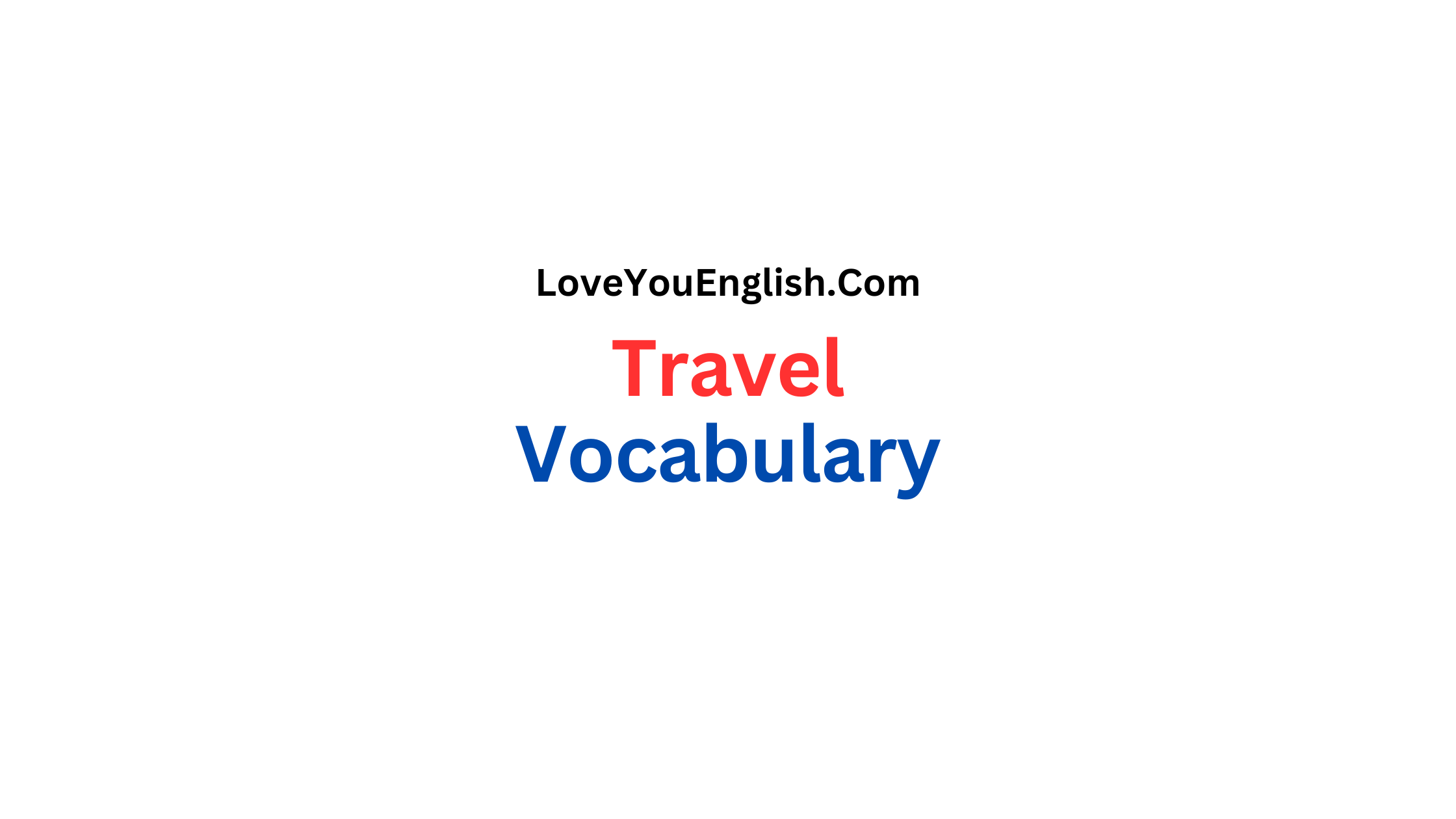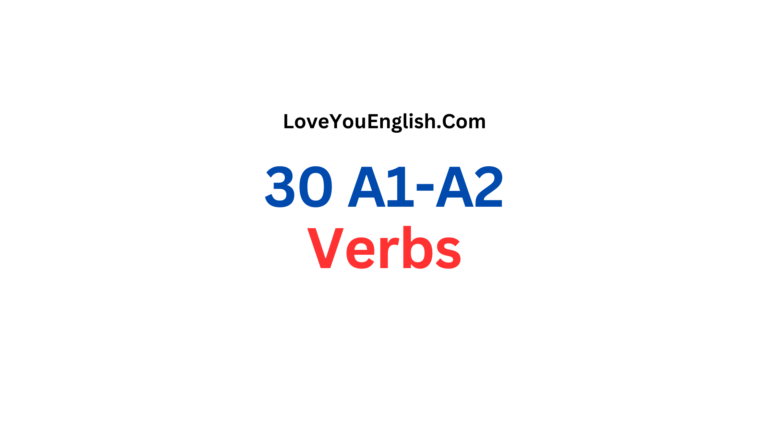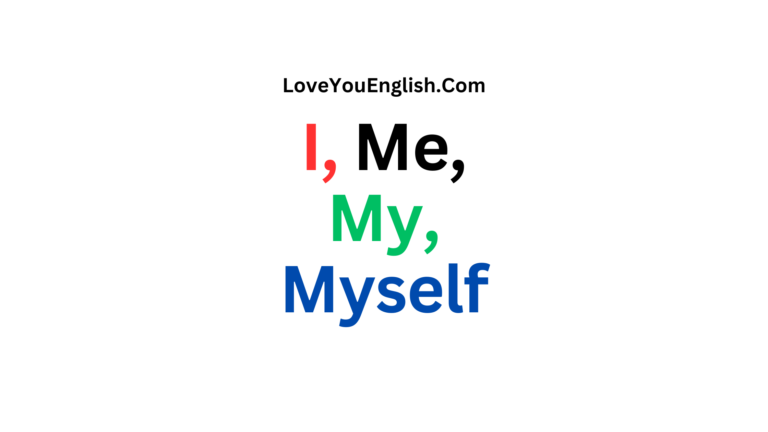Travel Vocabulary: Words and Phrases for Your Next Adventure
Are you thinking about going on a trip?
Whether you’re visiting a city close to home or flying to a distant place, learning some important travel words and phrases can really help make your trip easier.
In this post, we’ll look at some must-know travel vocabulary that will assist you with getting around, finding places to stay, eating out, seeing the sights, and much more.
Let’s get started!
Transportation Vocabulary
Getting from place to place is a big part of traveling.
Here are some important words related to transportation:
Airport: The place where planes take off and land
Airline: A company that operates flights
Flight: A journey by airplane
Departure: When you leave a place
Arrival: When you reach your destination
Gate: The area where you board your plane
Passport: An official document that lets you travel between countries
Visa: A document that allows you to enter certain countries
Customs: The place where officials check your belongings when you enter a country
Luggage or Baggage: The bags and suitcases you bring on your trip
Carry-on: A small bag you can take with you on the plane
Check-in: The process of registering for your flight at the airport
Boarding pass: A document that lets you get on the plane
Terminal: A building at the airport where passengers wait for flights
Taxi or Cab: A car with a driver you can hire for a short trip
Uber or Lyft: Apps that let you request a ride from a nearby driver
Bus: A large vehicle that carries many passengers, often used for public transportation
Train: A vehicle that runs on tracks and carries passengers or cargo
Subway or Metro: An underground train system in a city
Rent a car or Car rental: When you pay to use a car for a short time
Gas station or Petrol station: A place to buy fuel for your car
Map: A drawing that shows the layout of an area
GPS: A system that helps you find directions using satellites
Accommodation Vocabulary
Where you stay during your trip is crucial.
Here are some words related to accommodation:
Hotel: A place that provides rooms for travelers to stay in
Motel: A hotel usually located near a highway, often with parking near the rooms
Hostel: A budget-friendly place where travelers can rent beds in shared rooms
Airbnb: A service that lets people rent out their homes or rooms to travelers
Resort: A place for vacations that usually offers many activities and amenities
Campground: An area where people can set up tents or park RVs
Check-in: When you arrive and register at your accommodation
Check-out: When you leave your accommodation at the end of your stay
Reservation: An arrangement to have a room saved for you
Room key: The key or card that lets you into your room
Single room: A room for one person
Double room: A room for two people
Suite: A set of connected rooms in a hotel
Amenities: Extra features or services provided by your accommodation
Lobby: The main entrance area of a hotel
Front desk: The place in a hotel where you check in and ask for help
Concierge: A hotel employee who helps guests with various tasks and information
Room service: When food is brought to your hotel room
Sightseeing Vocabulary
Exploring new places is what travel is all about.
Here’s some vocabulary for sightseeing:
Tourist: A person who travels for pleasure
Tour guide: Someone who shows tourists around and gives information about places
Attraction: A place that people want to visit, often for its beauty or interest
Landmark: A famous building or place that’s easy to recognize
Museum: A building where important objects are kept and shown to the public
Gallery: A place where art is displayed
Monument: A structure built to remember a person or event
Cathedral: A large, important church
Palace: A large, fancy building where royalty lives
Castle: A large building with strong walls built in the past to protect against attack
Park: An area of public land with grass and trees
Beach: An area of sand or small stones next to the sea or a lake
Mountain: A very high hill
Hiking trail: A path for walking in nature
Souvenir: Something you buy to remember a place you’ve visited
Photograph: A picture taken with a camera
Sightseeing: The activity of visiting interesting places as a tourist
Useful Phrases for Travelers
Lastly, here are some helpful phrases you might use while traveling:
“Excuse me”: Used to get someone’s attention politely
“Please”: Used when asking for something politely
“Thank you” or “Thanks”: Used to show gratitude
“You’re welcome“: A polite response to “thank you”
“Do you speak English?“: Asking if someone can communicate in English
“I don’t understand“: Used when you’re not sure what someone means
“Can you help me?“: Asking for assistance
“Where is…?“: Asking for directions
“How much does this cost?“: Asking about the price of something
“Can I have the bill, please?“: Asking for the check in a restaurant
“Cheers” or “Bon appétit“: Said before starting to eat or drink
“Goodbye” or “See you later“: Said when leaving or ending a conversation
Final thoughts:
Knowing some travel words and phrases can really help make your trip smoother and more fun.
Even if you can’t speak the local language perfectly, trying to use a few important words shows that you care and helps you connect with the locals.
Before you go on your trip, it’s a good idea to learn some simple words and phrases in the language of the place you’re visiting.
People usually appreciate your effort, even if you don’t say everything just right.
And remember, if you’re having a hard time talking, don’t hesitate to use hand signals or point to things.
Most people are understanding and happy to assist travelers.
Have a great trip, and I hope your new words help you on your adventures!







